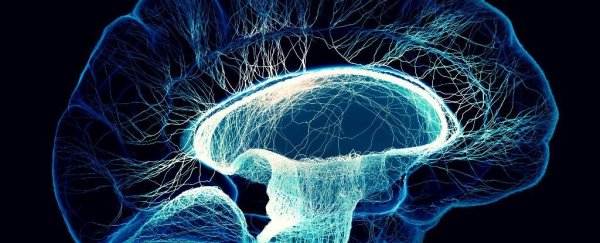Consciousness is what allows you to think, remember, and feel things.
The term can refer to someone's actual experience of the world - their thoughts, sensations, and decision making - as well as the appearance of awareness to an observer.
This might seem like a fairly straight-forward definition, but consciousness ranks among the hardest phenomena for science to explain thanks to its most fundamental feature: its subjectivity.
Unlike things defined by what we can all observe, such as the charge of a proton or the number of stars in a whole galaxy, features that define the subjective experience of consciousness cannot be observed independently of an individual's experience.
Where does consciousness come from?
As argued by the philosopher Thomas Nagel in his essay "What is it like to be a bat?", even if you were to be transformed into another thinking entity (such as Nagel's bat), the very fact it is 'you' being transformed means you'll never experience the consciousness of the thing you're turned into.
To make matters more challenging, aspects of consciousness involve a sense of agency, or a feeling of control over one's actions.
Since a choice can be neither a random act explainable by quantum physics, nor predetermined by more classical laws of physics, the concept of 'free will' is just one more headache for scientists to explain before consciousness can be fully understood.
How do scientists study consciousness?
Philosophically speaking, consciousness can be divided into two fields - what philosopher David Chalmers splits into 'easy' and 'hard' problems.
The easy problem involves mapping the relationship between the appearance of consciousness to other observers (such as the appearance of awareness, decision making, expressions of thought) and things in the physical world, particularly activity of the nervous system.
Neurological research makes it clear that changes to the brain can have a direct, causative influence on consciousness. This includes not just the impact of traumatic injuries on a person's conscious experiences, but also the effects of drugs, including anaesthetics, and electromagnetic stimulation.
By observing changes in physiological responses and comparing them with personal descriptions of conscious experiences, neurologists can explain how consciousness might arise.
These include describing how we experience an ongoing sense of identity, how our brain divides conscious perception into frames, and how regions of the brain cooperate to create an external appearance of conscious activity.
Can AI become conscious?
Research that aims to solve the easy problem means we could one day make a computer that seems as conscious as a human.
The hard problem, on the other hand, reflects the challenges of defining and modelling agency and observing the mechanisms behind subjective experience (or to give it its more philosophical term, qualia).
Without ways to even predict the kinds of observations that match definitions of consciousness based on qualia and free will, consciousness of this nature remains too difficult to study scientifically.
According to the hard problem, we'll never really be sure if a 'conscious' computer knows its own thoughts like a human.
All Explainers are determined by fact checkers to be correct and relevant at the time of publishing. Text and images may be altered, removed, or added to as an editorial decision to keep information current.
